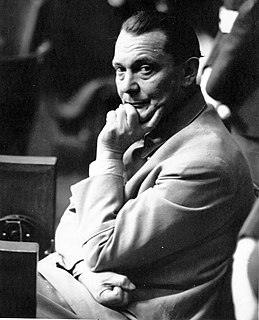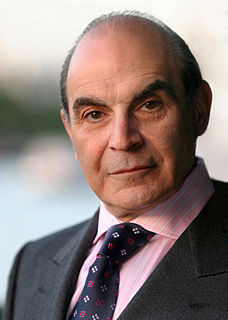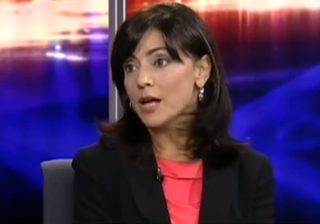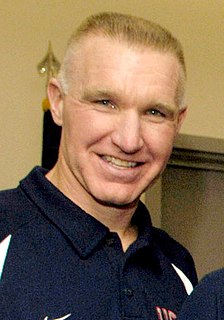A Quote by Winston Churchill
Always remember, however sure you are that you could easily win, that there would not be a war if the other man did not think he also had a chance.
Related Quotes
I've always been a fast reader. Now I had to do it slowly, discussing each sentence. And every time I wanted to change something I had to come up with an intelligent defense I could be pretty sure that they would turn my suggestion down, as they had so many aspects to keep in mind. However, if I argued well, I could have a chance. I had to think of every comma, every word.
To me there are two Hitlers: one who existed until the end of the French war; the other begins with the Russian campaign. In the beginning he was genial and pleasant. He would have extraordinary willpower and unheard-of influence on people. The important thing to remember is that the first Hitler, the man who I knew until the end of the French war, had much charm and goodwill. He was always frank. The second Hitler, who existed from the beginning of the Russian campaign until his suicide, was always suspicious, easily upset, and tense. He was distrustful to an extreme degree.
I'm absolutely not an athletic person, but I used to be married to a runner. He would say that, especially in long-distance races, you could tell who was going to win and who wasn't, and if the person was present behind his eyes, if he was looking around and paying attention, you could be pretty sure he wasn't going to win. The person who was tranced out had a much better chance of winning. Because he or she had lost his or her governing self.
Napoleon was one of the most complex personalities in history.He was ruthless, small in stature, a bully, vulnerable, unfaithful and I think he was the first person to shoot prisoners of war so that he had food for his own army. He was absolutely single-minded but he also obviously had charm. How else could a man like him have come back as he did and have the nation rise to a man!
War is the admission of defeat in the face of conflicting interests: by war the issue is left to chance, and the tacit assumption that the best man will win is not at all justified. It might equally be argued that the worst, the most unscrupulous man will win, although history will continue the absurd game by finding him after all the best man.
Before the Second World War I believed in the perfectibility of social man; that a correct structure of society would produce goodwill; and that therefore you could remove all social ills by a reorganisation of society. .... but after the war I did not because I was unable to. I had discovered what one man could do to another... I must say that anyone who moved through those years without understanding that man produces evil as a bee produces honey, must have been blind or wrong in the head...
I'm sure, out of the context here of Stanley Levison's relationship with the Jewish liberal forces, that had made contributions. I remember one such contribution before they moved from Montgomery. An associate in the real estate business with Stanley had lost a son in the war, and she wanted to do something in memory of him. So, she made available certain monies to be used by the emerging leadership there in Montgomery. I'm sure other individuals did.
I remember everyone telling me I had to think positive when I was writing my first book. If I believed I could do it, then I could! If I pictured myself published, then it was going to happen! Which sounded great, except...could I do it? If I didn't think I could, was I doomed to fail? What if I was almost totally sure I would fail? I am here to tell you-what matters is sticking with it.











































